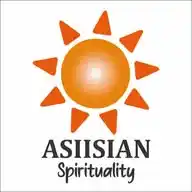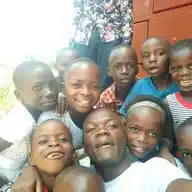
Asiisian Spirituality
91 subscribers
About Asiisian Spirituality
*ASIIS COMMUNITY* Welcome to the Forum for the Restoration of the Kalenjin Natural Religion and Ways of Worshipping Asis (God) *1. Asis* - God *2. Asisianism* - Religion of Asis Worship, practiced by the Kalenjin People *3. Asiisian* - Someone who practices Asiisianism *4. KapKoros* - Kalenjin Asiisian Shrine *5. Mabwaita* - The Asiisian Alter at KapKoros, Homestead and Kaptum *Kootap Kalenjin - Kootap Kikir!!*
Similar Channels
Swipe to see more
Posts

Listen up, Men! Gambling is CRIPPLING. You think you’re about to change your life with one lucky bet? Nah, bro—you’re about to wreck it. Gambling is the fastest way to stay broke while chasing the illusion of wealth. It’s the shortcut that leads straight to the longest road of regret. It’s the drug that feels like hope but always delivers disappointment. I’ve seen strong men turn into beggars because of gambling. I’ve seen fathers lose their family’s food money chasing a jackpot that never came. I’ve seen young men with potential waste their time, energy, and last kobo on a dream that the house NEVER lets them win. Let’s be real: The casino was not built for you to win. The betting site does not exist to make YOU rich. If that were the case, they’d be out of business. The game is RIGGED, and you’re the willing victim. Here are brutal 4 truths about gambling : 1. The house always wins. The odds are designed to keep you hooked, losing just enough to keep chasing. 2. Winning small is bait. You hit a small jackpot, and now you think you’re on fire. Nah, bro, that’s the trap! That’s the bait to make you think you can do it again. But guess what? You’ll give it all back—and more. 3. Gambling isn’t about money. It’s an addiction to hope. You’re not gambling because you love money; you’re gambling because you love the feeling of maybe. That “maybe” is a LIE. A very BIG LIE! 4. It’s a tax on the desperate. The rich don’t gamble; they own the game. The poor gamble, thinking they’ll get rich. That’s why they stay poor. BRO, WAKE UP! You don’t need a jackpot. You need discipline. You don’t need luck. You need skills, strategy, and hard work. You don’t need “one big win.” You need consistency. A man who gambles is a man who has surrendered his power to chance. A man who grinds, hustles, and builds? That man controls his destiny. Instead of throwing money at games, throw it into books, courses, and businesses that actually make you money. Learn sales, copywriting, tech, real estate, or any skill that guarantees returns. Every rich man you admire built something over time. If gambling worked, the world would be full of billionaires made from betting—but it’s not. Every time you bet, you’re literally handing your hard-earned cash to someone who is already richer than you. Madness! Betting sites make billions from the foolishness of men. Instead of funding them, become the guy who gets funded. You were not born to be a slave to luck. You were not created to hope for miracles while throwing away your resources. You are stronger, wiser, and more capable than this. Leave gambling to the weak and the lost. Build yourself into a man that doesn’t need luck—because you create your own. *Copied

KAIILET AB KARIIK Kaiiletab kariik ko igoortab kipgaa nebo Nandi ne kikiyae kokaleel arawet anan ko betusiek artam yetap kosiirto boiyot ab koot. Ki eng keny kikiyoe igoratak kouni amu betusiechu ko kikowalak atebeet ak boisionik. Kikiili kariik ak leleek ak kora ko komii kandiyseet. Kingokakobata betusiek artamu kong'ete ngosiirto boiyot, kokikienyei eito ak koam biikab bororienyi ak choronok. Kiili kariikwak ak leleek biik tukul che kimii igooratak. Kikileweni ng'etab kamet agenge anan ko ngomatindoi keleweni werit ne tupcho kobo boisiek ak inendet nekikosiirto, kolany kimonjok atya koiri kimonjokut ne ituitos pambanikab kot. Notok ko ki kabarunet kele makomii Toloitab koot. Kingoiri keleen "Keng'isir Toloita". Kingobata nitok, ko kiwendi kora koot orit akoiri ketit sakwet ne kicham kokartate kariik eng toloita, ak itoogut, totet akopatpat ng'echerok atya kong'omor kikombok asi matakoeeise nyigoonik, anan kotebee ng'echerok. Kotee kotakotumi met mosegeet ko kimakochamtayat kichut koyotok orit muren age tugul ne kikeyatita. Kiimuch matakitun/kiindi anan kolach munaokab chepyosok kwonyotok. Kingobata kaiilset, kebcheei tukukab chichotok kikosiirto koboto kariikab luget ak kobaisie che kakitororchi. Kongoi amu kaisoman ak inai.👌👌👌👌👌 Koserei ngalechu inendet @Sally Rotich

KIPYEGEN ~ Moset ak Muriat (Baboon and Rat~ Nandi) kaptinyei setyo let kibwalei. Tui kuteo ng'urum tebei koi konab sot. Che inori bei che machechwak. 🤓

Some important knowledge on astrology. The only strange names are *korkoob kookeelik* and *kirkitaab kookeelik*. The rest are correct. #copied KOROOT KOGEL Venus is Korkoop kogel, Jupiter is Kirgitab kogel, Mars is Kipelpany Or "Pirir koong" While Orion's belt is a star constellation called "Kapsomok" And pleiades is another star constellation called "Koromerik" Or "Changiik" According to kalenjin astrology, When Korkoop kogel (Venus) Meets kipelpany (Mars) Then something bad will happen. Kapsomok is for confirmation of circumcision year. They observe it's inclination and color It's details is a sacred knowledge. When all the above planets are aligned together They call it "Koroot kogel" And the year will be good. This is happenned on January 2025

*Morality: A Natural Law, Not a Religious Doctrine* The greatest lie ever told was that morality comes from religion. This deception has made people believe that without religious laws, humans would be wicked. But morality does not come from commandments it comes from understanding *consequences*. The origin of humanity is the origin of morality. Long before religion, human beings lived by natural law. Morality was not about avoiding hellfire; it was about the cause and effect of our actions. In Kalenjin culture, morality was rooted in a *value system*, not a *belief system*. We lived by principles that governed actions and their consequences. This was known as *Ng’ooki* the natural law of cause and effect. - If you betray trust, you lose business and destroy relationships. - If you steal, you create conflict and become an outcast. - If you mistreat others, you isolate yourself and invite misfortune. This was not a morality based on *fear* but on *awareness*. Ng’ooki ensured that every action had a consequence. It was not about sin and forgiveness; it was about responsibility. You do not escape consequences because someone "paid for your sins." That is a foreign lie meant to absolve people of accountability. *There is no forgiveness from the universe only cause and effect.* You might not face the consequences today, but they will come, whether in this generation or the next. Religious morality is artificial. It creates people who behave well only out of fear of punishment, not because they truly understand the impact of their actions. It does not produce genuine human beings. It produces *hypocrites*. That is why religious people often commit the very sins they preach against. They believe they can always be forgiven, so they have no real reason to change. A *value system*.produces people who are moral because they understand *why* they must be moral. A *belief system* produces people who follow rules only because they fear hell. Which one creates a better society? Good societies domesticate their children based on *value systems, not belief systems*. In our culture, *Kipgaa*, we had: - **Konyit** (respect) - **Kikirei** (taboos) - **Etanutiik** (prohibitions) - **Ng’ooki** (actions and consequences) These were the **pillars of moral life**. Children did not avoid wrongdoing because of religious guilt; they avoided it because they understood its effects on their community and their future. Today, however, Africans have abandoned their *value systems* and adopted *religious belief systems* that promote blind obedience rather than conscious awareness. As a result, we have lost our moral compass. The consequences of this shift are devastating: - *Rampant corruption*: When people believe they can sin all week and be forgiven on Sunday, morality becomes a performance. Leaders steal without shame because they think repentance erases consequences. But **Ng’ooki** teaches that every stolen coin has a price it will return as sickness, misfortune, or destruction in their lineage. - *Widespread dishonesty*: People have become comfortable with lies because religion has taught them that truth is only important in the eyes of God, not in human relationships. Business deals collapse, friendships erode, and communities weaken because trust has been replaced with deception. - *Moral confusion*: A society ruled by religious belief rather than natural consequence produces people who do not understand the real impact of their actions. They fast for blessings but cheat in business. They pray for wealth but refuse to work with integrity. They condemn immorality while secretly indulging in it. - *Loss of personal responsibility*: When morality is tied to forgiveness, people refuse to take responsibility for their actions. Instead of facing the consequences, they blame the devil, claim they were tempted, or expect divine mercy to erase their wrongs. But *Ng’ooki* does not care for excuses it only responds to actions. A **hypocritical society** is a broken society. People wear the mask of morality but act without integrity. They look holy in public but lack honor in private. They speak of righteousness but live in contradiction. Such a society cannot thrive. The only path forward is to *return to our value systems*. To raise children who understand morality not because they fear punishment, but because they recognize the power of their actions. To rebuild a society where truth, respect, and accountability are not just preached but *practiced*. For in the end, *Ng’ooki remains undefeated* every action has a consequence. The universe does not care for who "paid for your sins." It only delivers what you have sown.

In Tugen we have age sets for women correspondence to those of men and what's the set up in other sub communities. Ours are as follows according each age set: 1. Chumo Sons -Korongoro Dauthers ‐Masinya/Chemasinya 2. Sowe Sons ‐Kipkoimet Daughters -Chesur 3. Korongoro Sons -Kaplelach Daughters -Kosancha 4. Kipkoimet Sons ‐Kipnyikew Daughters -Chelemei 5. Kaplelach Sons -Nyongi Daughters ‐Chebarkamai 6. Kipnyikew Sons -Chumo Daughters - Chepingwek 7. Nyongi Sons -Sowe Daughters -Chesiran

Kipsigis narrative holds 'widows belong to the clan and family of the descesed husband. One member of the family is said to keep the widows custody. Kilen kilolochi maat. Kilen kindii , hence the member of the family taking care of the widow is called kipkondiit. No remarriage allowed. Our chepkisa shrine got several teachings concerning 1. Widows 2. Widowers 3. Single parents 4. Unmarried daughters 5. Family with daughters Only 6. Family with sibling who survived from death. All others passed ( Tegeret) 7. Chemenjo 8. Chebotibik 9. Family with sons Only 10. Polygamous families 11. Monogamous families 12. Single families 13. Nucleus families 14. Surrogate families 15. Polyandry families 16. Burial rituals 17. Deaths handling 18. Mourners taboos 19. Respect for the descesed 20. Respect for bereaved 21. Taboos of bereavement period 22. Dead view 23. Approach to handling several causes of dead like, natural, homicide and intentional, Natural as in killed by ILAT through his messenger s ( ilotik) kipsigis komwoe kole kobar beekab barak/ kwomis beekab barak 24. Food of burial/ bereavement 25. Grave and it's taboos 26. Physical, emotional, mental and spiritual nursing and handling during mourning period and many more, please add the list. Dos and don't are there in kipsigis in respect to dead, deaths and anything related to matters mourning and bereavement.

*The Existence of God* The question of God's existence has been debated for centuries, with proponents of theism arguing that God's existence can be proven through reason, faith, and experience. On the other hand, atheists and agnostics argue that there is no empirical evidence to support the existence of God. Asiisianism marvels on the Sun ☀️ as a constant reminder that There is an existence of *Asiis* (God).

Keiyo tribe agesets: The parent and their children (first borns ) agesets. 1. Chumo Sons- korongoro Daughters- Chemasiny'a 2. Sowe Sons- Kipkoimet Daughters- Chesur 3. Korongoro Sons- Kaplelach Daughters-Kosancha 4. Kipkoimet Sons- Kipny'ikew Daughters- Chelemei 5. Kaplelach Sons- Nyongi Daughters- Chebarkamai 6. Kipny'ikew Sons- Maina Daughters- Kwany'or 7. Nyongi Sons- Chumo Daughters- Chesiran 8. Maina Sons- Sowe Daughters- Chebilbai Note: 1. The sons, males, may fall into different age set groups, starting from that listed (first born), which may depend on the age set then current at the coming of age of a son. For example, if your father was a Chuumo, he would have first born son circumcised into Korongoro (firstborn), Kipkooimet, Kapleelaach, and Kipnyigeei, but daughters fall into only one age set, Masinya. 2. For women, they have their NATURAL (Born) age set and their ADOPTED (married-oboo) age set the age set of the man she marries or gets married to is the adopted a/oboo, e.g., Kipkooimet, and hence all wives of this age set are (bookinei, pookinei, or mechei, depending on the tribes you come from) to all the male age sets; however, the women have their own natural/born age sets. 3. In Kalenjin only three tribes have seven agesets that's Kipsigis (no Kipkoimet), Nandi (no Korongoro), and Tugen (no Maina). 4. For example, a Kipkooimet can't marry or shake hands with a Chelemei his age-set's daughter but touches only the head, uttering a universal greeting phrase that is likewise responded to by the greeted—applicable only to circumcised ones!

‼️📢NGOO-KIi: ⁉️The Inescapable Spiritual Force of the Kalenjin People.⏩Biik a'ab kip'gaa neboo Oboo a'ak kugoo . Biikaab A'siis ✍🏼✍🏼🩺🩺✍🏼✍🏼🩺🩺 By 👇🏼 kei'yoot kug'oob Be'ruur kwom'boo che'beet mao'indeet chiit'a'ab naan'deet today 31st of January 2025 Among the Kalenjin people, there exists a powerful, inescapable spiritual force known as Ngooki. This is not a mere superstition or a myth, but an undeniable force embedded in the moral and spiritual fabric of the community. Unlike everyday transgressions that can be forgiven through simple words or prayers, Ngooki carries profound and lasting consequences. It is not just a statement of wrongdoing but an invocation of a real and active spiritual force that demands balance. Ngooki is often misunderstood by outsiders who equate it with the concept of sin found in Christianity. However, there is a fundamental difference. In Christianity, sin is a transgression against God, and forgiveness is obtained through repentance and divine mercy. The burden of atonement is placed upon faith and the grace of God. In contrast, Ngooki is not simply a moral failing—it is a violation of the cosmic order, a spiritual imbalance that must be corrected through action, restitution, and purification. --- The Nature of Ngooki Ngooki is invoked when a person commits a serious wrong, particularly one that disrupts the natural flow of justice, fairness, and societal order. Such violations include: 1. Betraying a trust – If someone places faith in you, whether in business, leadership, or personal matters, and you deliberately deceive or harm them, you invoke Ngooki. 2. Shedding innocent blood – Murder, or causing the death of an innocent person through malice or negligence, invites Ngooki upon the perpetrator. 3. Stealing or taking what does not belong to you – Theft, especially of property tied to lineage, such as ancestral land, invokes a spiritual imbalance. 4. Mistreating one's parents or elders – Disrespecting, cursing, or neglecting parents and elders invites Ngooki, as it disrupts the natural cycle of generational blessings. 5. Breaking sacred oaths – If one swears an oath invoking Asiis (God) or the ancestors and later breaks it, they bring Ngooki upon themselves. Ngooki is not confined to the individual who commits the offense; it extends to their children, their lineage, and even their descendants. This is the reason some families seem to suffer generation after generation—poverty, sickness, misfortune, and unexplained tragedies. The elders often say that such families are under the weight of an unresolved Ngooki from an ancestor. --- Why Ngooki Cannot Be Ignored The nature of Ngooki is such that it does not simply disappear with time. Ignoring it only worsens the situation. If not addressed, the spiritual imbalance continues to manifest in various ways: Sickness and suffering – A person or their family members may experience chronic illness or mysterious ailments that do not respond to medicine. Unexplainable misfortunes – Repeated financial struggles, accidents, or sudden deaths within a family can indicate an unresolved Ngooki. Barrenness and infertility – In some cases, those under Ngooki may struggle to bear children, or their children may not survive to adulthood. Madness and mental instability – Some mental disorders, especially those that seem to have no medical explanation, are believed to be the result of Ngooki. These consequences are seen as signs that the balance of justice and cosmic order has been disturbed. --- How to Correct Ngooki: Restitution, Sacrifice, and Cleansing Unlike Christian theology, where one can seek divine forgiveness through prayer and faith, Ngooki requires action. One cannot merely repent with words; they must actively restore balance by making amends. This process involves restitution, sacrifice, and cleansing: 1. Restitution – The offender must return what was taken, whether it is stolen property, land, or honor. If a family’s wealth was built on injustice, the only way to lift Ngooki is to correct the wrong by compensating the victims or their descendants. 2. Sacrifice – Traditionally, certain wrongs required a specific sacrifice, often involving a goat, sheep, or bull, to appease the spiritual forces and cleanse the offender. The type of sacrifice depended on the severity of the offense. 3. Cleansing rituals – The individual, or sometimes an entire family, must undergo a purification ceremony led by elders. This could involve rituals using milk, herbs, or specific prayers invoking Asiis to lift the curse. --- Ngooki in the Modern World Some may wonder whether Ngooki still holds power in today’s modern society. After all, many traditional beliefs have been abandoned, and people now live in a world governed by laws and institutions rather than spiritual codes. However, even today, many Kalenjin families experience unexplainable misfortunes that are attributed to past wrongs. For example, there are cases where a family has accumulated great wealth through corruption, only for their children to die young or suffer mysterious ailments. Others find that no matter how much effort they put into their lives, they never prosper. In such cases, elders often say, “Ngooki is at work.” Even in politics, leaders who rise to power through betrayal or deceit often face public disgrace, early deaths, or family misfortunes. These are seen as manifestations of Ngooki taking its course. --- Lessons from Ngooki: Living a Just and Balanced Life The principle of Ngooki teaches a fundamental truth: actions have consequences. One cannot simply do evil and expect to escape unscathed. The universe remembers, and justice must be served—if not in this generation, then in the next. For those who value their lineage and future generations, it is important to: Live a just and honest life. Avoid greed, betrayal, and dishonesty. Respect elders, parents, and spiritual forces. Seek forgiveness and make amends whenever possible. Ngooki is not just about punishment—it is about maintaining balance. It reminds us that life is interconnected, and no one can escape the consequences of their actions. By understanding and respecting this force, one can live a life that brings blessings rather than curses. --- Conclusion Ngooki is not merely a word or a superstition—it is an active force that operates in the spiritual realm, ensuring that justice is upheld. Unlike Christian sin, which can be erased through repentance and divine forgiveness, Ngooki requires action—restitution, sacrifice, and cleansing—to restore balance. It serves as a warning against injustice and a reminder that our actions affect not only ourselves but also our descendants. Those who ignore Ngooki invite doom upon their families, while those who respect it ensure blessings for their lineage. In the end, Ngooki is not just about fear of punishment—it is about the pursuit of justice, accountability, and harmony with the universe. Those who understand this live wisely, knowing that every action carries weight and that the past always catches up with those who refuse to make things right.












